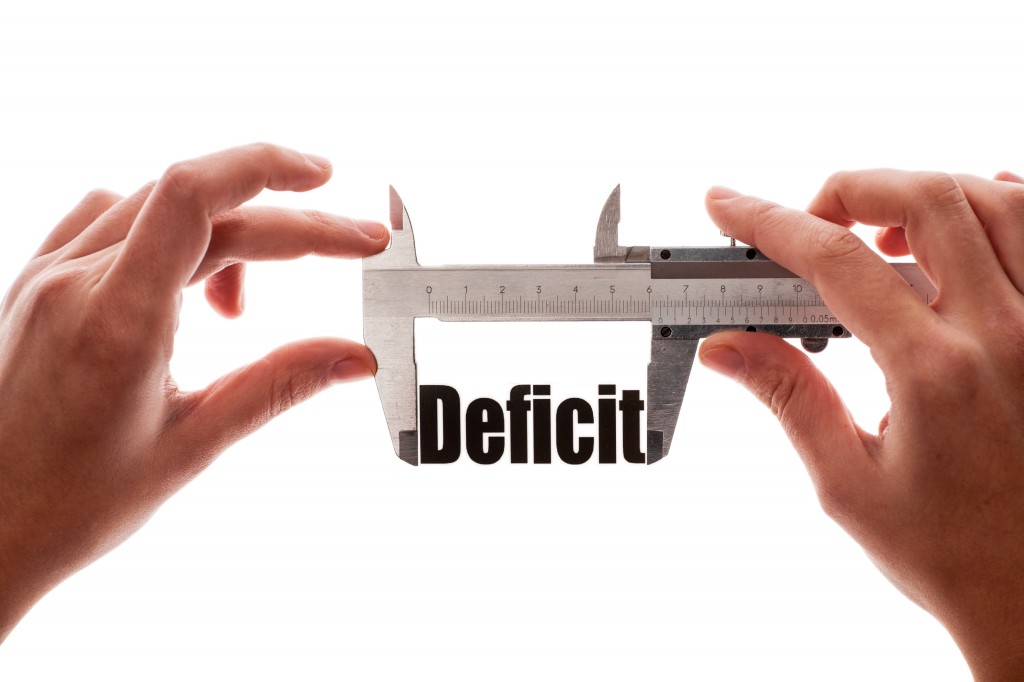Deficit as proportion of GDP was 1.7% in 2016

The deficit of the general government sector in 2016 was HUF 609.7 billion, 1.7% of GDP according to preliminary data, which was HUF 82.2 bln, or 0.1 percentage point, higher as a proportion of GDP than the deficit in 2015, according to a first release of data from the Central Statistical Office (KSH) today.
The KSH noted that it has reported the data to Eurostat, the statistical office of the European Union, in compliance with the regulation on the excessive deficit procedure (EDP), and according to the methodological requirements of the European System of Accounts (ESA 2010).
The debt of the general government sector – based on data of the National Bank of Hungary (MNB)– was HUF 25,922 billion, or 74.1% of GDP, at the end of 2016.
In 2016 compared to 2015, the general government sector’s deficit of HUF 609.7 bln (1.7% of GDP) was HUF 82.2 bln more, or 0.1 percentage point higher, as a proportion of GDP.
Revenues decreased by HUF 511.9 bln, or by 3.1%. The decrease was the result of two opposite trends: the HUF 1,116.1 bln (34.5%) decrease in other revenues (including mainly EU transfers) was accompanied by the growth of domestic sources of revenues. Actual social contributions grew by HUF 343.7 bln (by 7.7%) and taxes on income by HUF 244.6 bln (by 10.2%). Revenues from taxes on production and imports and from capital taxes rose by smaller amounts: the former was HUF 11.2 bln more, and the latter HUF 4.7 bln higher than a year earlier.
Expenditures were lowered by HUF 429.7 bln, or by 2.5%. The main component of this change was the HUF 1,164.4 bln or 51.7% decrease in gross fixed capital formation, which can be explained by the ending of payments for EU programs for the 2007–2013 period. Interest expenditures were HUF 81.5 bln (6.8%) less and intermediate consumption HUF 52.9 bln (2.1%) lower than in 2015.
On the other hand, other expenditures, which mainly include investment grants and capital transfers from domestic budget sources, increased by HUF 533.3 bln, or by 17.9%. Compensation of employees and social benefits other than social transfers in kind were also higher: the former was up by HUF 259.3 bln (by 7.2%) and the latter by HUF 76.5 bln (by 1.7%).
Much higher deficit in fourth quarter
In the fourth quarter of 2016 alone, compared to the same period of 2015, the deficit of the general government sector was HUF 852.4 bln, 9.6% of GDP, which was HUF 793.6 bln more, or 8.9 percentage points higher as a proportion of GDP than a year earlier.
The revenues of the general government sector decreased by HUF 660.9 bln, or by 13.1%, in Q4. Other revenues, including mainly EU transfers, diminished by HUF 711.5 bln (by 57.2%), and taxes on production and imports by HUF 97.0 bln (by 5.3%). At the same time, revenues from actual social contributions grew by HUF 115.8 bln, or by 9.7%, revenues from taxes on income by HUF 27.1 bln, and revenues from capital taxes by HUF 4.7 bln.
Expenditures were up by HUF 132.7 bln, or by 2.6%, in Q4. Other expenditures increased by HUF 618.2 bln, compensation of employees by HUF 88.3 bln, and social benefits other than social transfers in kind by HUF 76.5 bln. On the other hand, gross fixed capital formation lessened by HUF 548.2 bln, intermediate consumption by HUF 50.7 bln, and interest expenditures by HUF 23.3 bln in the fourth quarter.
SUPPORT THE BUDAPEST BUSINESS JOURNAL
Producing journalism that is worthy of the name is a costly business. For 27 years, the publishers, editors and reporters of the Budapest Business Journal have striven to bring you business news that works, information that you can trust, that is factual, accurate and presented without fear or favor.
Newspaper organizations across the globe have struggled to find a business model that allows them to continue to excel, without compromising their ability to perform. Most recently, some have experimented with the idea of involving their most important stakeholders, their readers.
We would like to offer that same opportunity to our readers. We would like to invite you to help us deliver the quality business journalism you require. Hit our Support the BBJ button and you can choose the how much and how often you send us your contributions.








